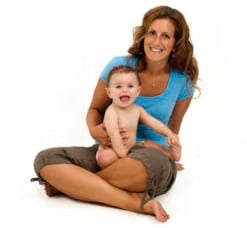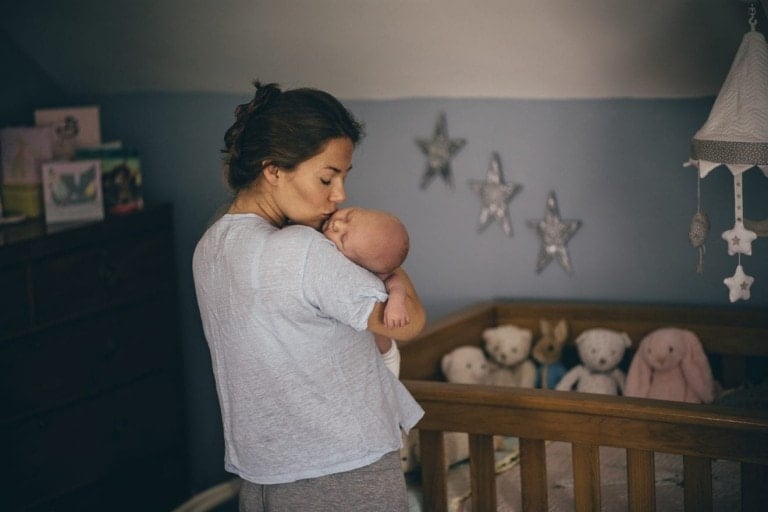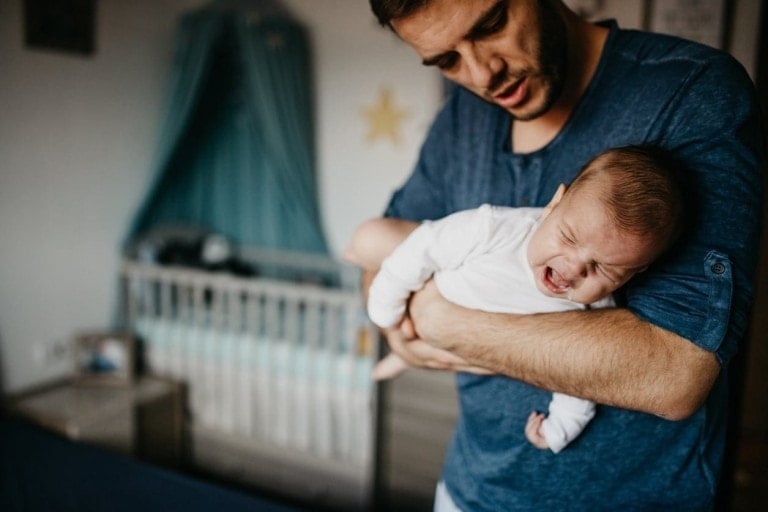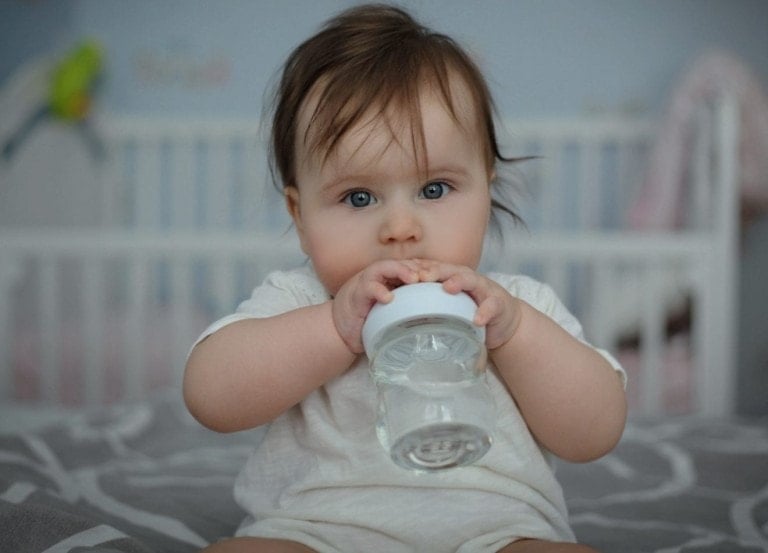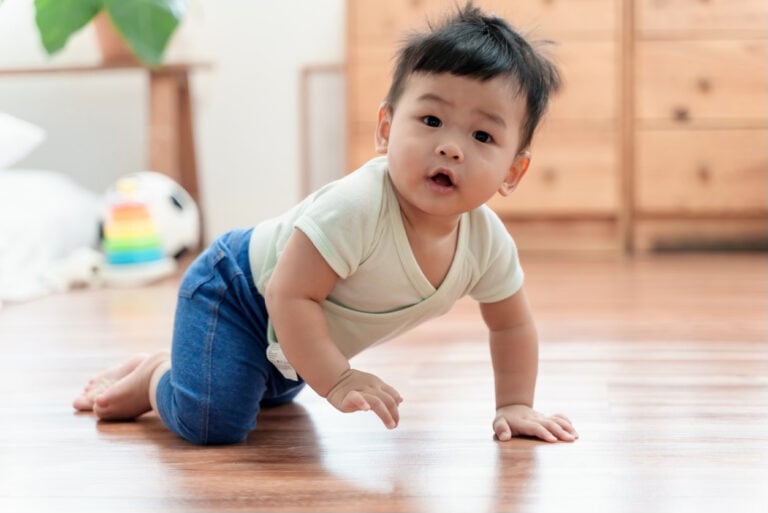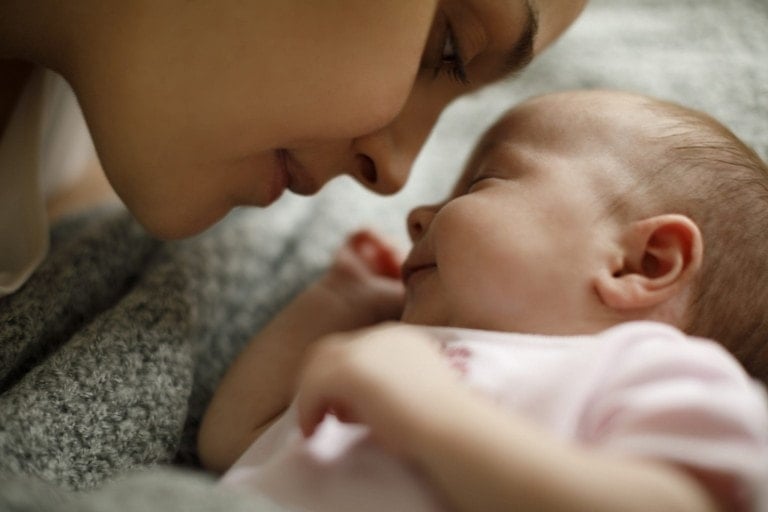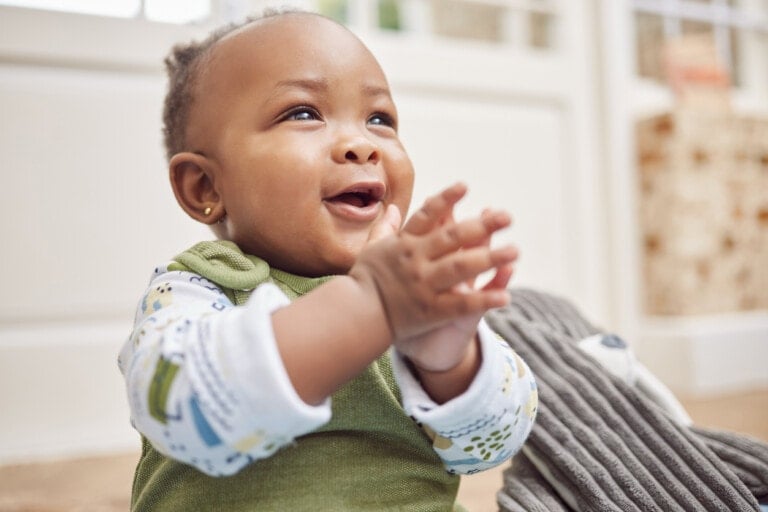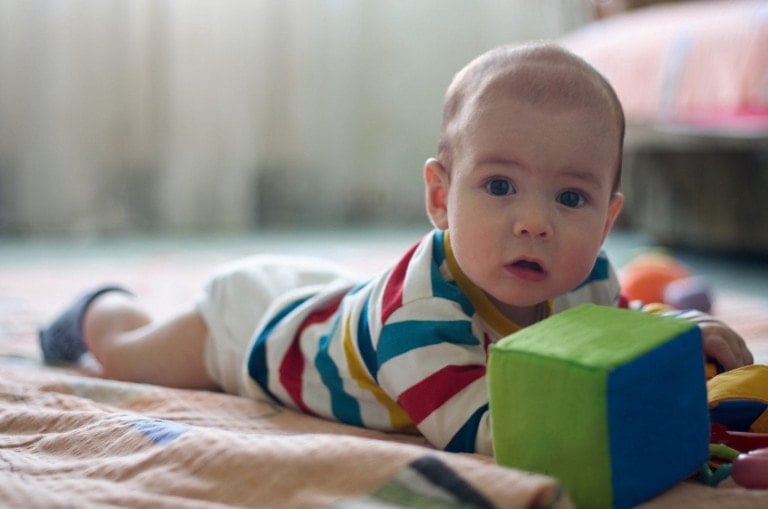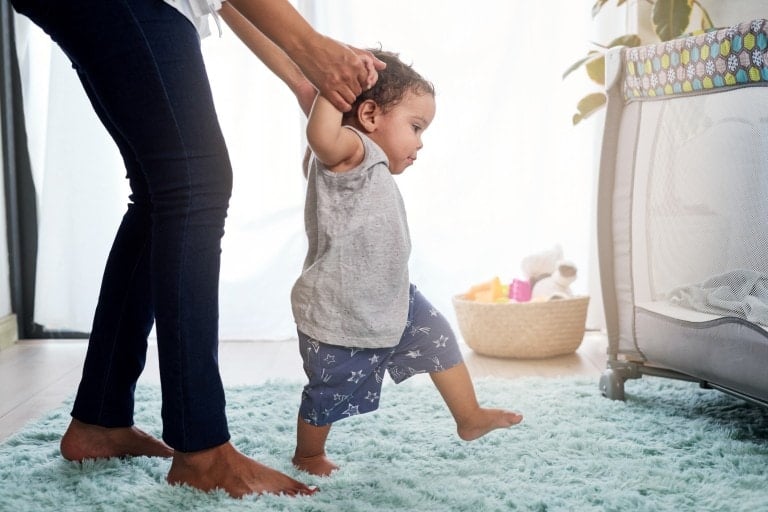You just bought the three-month-old onesie, and it already fits your baby like a body stocking! Another growth spurt? Probably. But it seems like he just had one! How can this be?
Baby Growth Spurts: What You Need to Know
How Do Growth Spurts Work?
Babies grow at very different rates, typically losing 10% of their body weight in the days immediately after they are born, then gaining weight at an average rate of 2⁄3 of an ounce (20–30 grams) per day. Babies typically grow between 1-1⁄2 and 2 inches during the first month. Boys tend to weigh slightly more than girls. According to the American Academy of Pediatrics, boys also tend to be somewhat longer than girls at this age.1
This baby growth does not happen in a smooth, gradual manner. Growth occurs in “spurts” throughout the first year of life and after. It is reported that infant growth in length follows prolonged sleep and more frequent naps.2 As you might expect, babies grow so much throughout the first 12 months that their weight typically triples during the first year of life!
Do Growth Spurts Hurt My Baby?
Though your baby may be irritable and even act like she is in pain, growth spurts do not hurt your baby. Your baby may feel unsettled, extra tired, and dissatisfied during a growth spurt, but this does not affect their general health.
If you suspect that there is a secondary issue going on, such as teething or an ear infection, it is important to trust your instinct and get advice from your child’s healthcare provider.
Some research shows that babies have a higher incidence of getting sick during or immediately after a growth spurt secondary to lowered immunity associated with a growth spurt.3 Pediatricians believe that maintaining your baby’s schedule as much as possible and providing healthy formula, breastmilk, and nutrient-rich food can help protect your child against getting sick.
What Are the Signs of a Growth Spurt?
Growth spurts usually last for one to two days for babies under six months and up to a week for older babies. They may be very noticeable with weight gain and tight little onesies, or you may not notice at all. Believe it or not, there are usually ways to predict when these growth spurts will occur.
Sleep
One of the tell-tale signs that a growth spurt is imminent is that your baby may require extra sleep. Research shows that babies may sleep up to four additional hours one to two days before or during a growth spurt.4 You may notice deeper, more restful sleep during the night and longer naps during the day. Human growth hormone (HGH) is produced in the brain during sleep, and it is a critical component of your baby’s healthy growth pattern. It is also possible, although far rarer, for some babies to sleep less during a growth spurt. They may be more restless than usual and take shorter naps.
Researchers at Emory University in Atlanta found that growth spurts are related to more frequent bursts of sleep, peaks in total daily sleep duration, and the number of sleep episodes throughout the day.5 They also found that a growth spurt’s probability increases by a median of 43% for each additional sleep episode throughout the day and 20% for each extra hour of sleep.5
Behavior Changes
You may also notice that your baby’s behavior changes during a growth spurt, leaving them a little bit more irritable and clingy. This could be due to less sleep or just the exhaustion from the energy required for growth. You may also find that your baby will latch during breastfeeding and bottle feeding, then unlatch and fuss in between.
Change in Eating Habits
Changes in eating habits can also be a sign of a growth spurt. Some studies show that feeding spurts when your baby wants to eat more often and for more extended periods are associated with growth spurts, and other studies show no correlation. Some babies will want to breastfeed up to 16 times in one day or every hour while awake. This is also called “frequency days.”
Your baby may wake up more frequently during the night, looking for food during a growth spurt. He may also wake up earlier from naps during a growth spurt because he feels a little bit restless.
What Is a Typical Growth Spurt Timeline?
Some babies have growth spurts randomly at any time, but research shows that most babies fit their rapid growth periods into specific points in their development.
- Between one and three weeks
- Between six and eight weeks
- Three months
- Six months
- Nine months
- Twelve months
How Can I Help Myself Get Through This Exhausting Time?
Baby growth spurts can be exhausting for mom and dad, especially nursing mommas! As always, take care of yourself first. If your baby is extra fussy or clingy, try to bring in some help for an hour or two so you can get a shower, hit the gym, or go for a walk. That fresh air will do you a world of good!
If your baby wants to feed regularly, maybe take turns. Daddy can bottle feed in between breast-feedings with expressed milk if your baby allows it. There is no need to supplement with formula. Your body will produce extra milk supply if your baby is demonstrating a demand for it.
Whether you are breastfeeding or not, try to drink plenty of water and eat plenty of nutrient-dense meals. The vitamins and minerals found in whole foods will help you and your little one get through this transition time. Try to sleep when your baby sleeps or at least lie down during her nap time, so you are well-rested and ready for the next day.
The good news is that baby is growing and developing exactly the way she is supposed to! The growth spurt only lasts a few days, and then they are usually back to their usual selves. Of course, you will need to buy a few new onesies!














